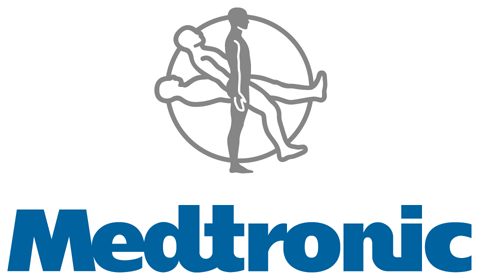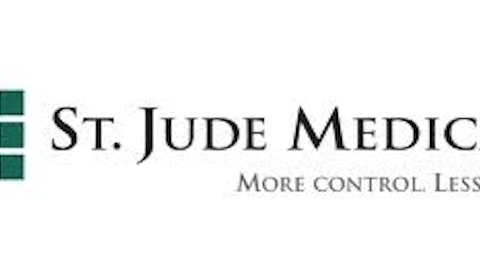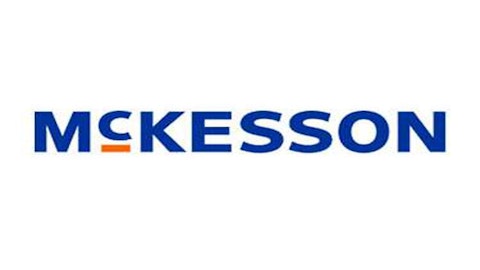The market gives investors a good number of chances to buy stocks when they are beaten down, and one such opportunity presented itself when medical devices maker Medtronic, Inc. (NYSE:MDT) slipped in February this year. There were concerns about the company’s business slowing down, but its fourth-quarter results, which were released in May, put such doubts to rest.
Medtronic’s huge size and diversification have helped the company overcome challenges, so it is not surprising that shares have continued their steady appreciation so far this year, rising almost 30%. And once you consider the company’s prospects, it won’t be surprising if the stock continues to fly higher.
An important turnaround
For starters, Medtronic, Inc. (NYSE:MDT)’s implantable cardioverter defibrillators (ICD) and pacemakers, which were the primary reason behind the bearishness of analysts on the stock, are back on the growth path. Sales of defibrillators grew 2% in the previous quarter while pacemaker revenue improved 5% (both excluding currency effects) from the year-ago period.
These improvements are really significant, as both these products were struggling but now seem to be growing again as Medtronic, Inc. (NYSE:MDT) gained market share, and more importantly, helped revenue from its Cardiac Rhythm Disease Management (CRDM) business grow 4% (excluding currency effects). This should have come as welcome relief to Medtronic investors as CRDM has struggled of late.
This market share gain in the CRDM doesn’t come as a surprise as Medtronic, Inc. (NYSE:MDT) was well-positioned to gain from the deficiencies in the ICD offering of its competitor, St. Jude Medical, Inc. (NYSE:STJ). St. Jude’s ICD, the Riata, has faced difficult times and was the subject of a recall in late 2011. The leads inside the defibrillator could break out of the insulation from the inside, according to The Wall Street Journal, and this should have played a part in Medtronic’s share gain.
Now, Medtronic, Inc. (NYSE:MDT) is looking to maintain its new-found momentum in ICD by launching new and improved devices, such as the Evera ICD. Evera would be of smaller size, and the company has made an effort to increase patient comfort through it. Such moves should help Medtronic keep its market share intact in this segment.
Growth ahead
Next, Medtronic has been aggressively focusing on emerging markets to drive international growth. The company’s international revenue has grown consistently in a range of 6%-8% for almost three years, and emerging markets have been the primary drivers of this growth. Going forward, the company is confident of keeping its momentum intact as it increases its presence and builds awareness.
Moreover, Medtronic, Inc. (NYSE:MDT) has been making some notable moves of late as far as new products are concerned. Its advanced insulin pump, which can automate delivery of insulin for Type 1 diabetics through a “threshold suspend” feature is being touted as a breakthrough technology. The company has filed for FDA approval of the device and if approved, it would be a big boost for it.
Also, Medtronic recently received the CE mark for its CoreValve device in Europe, which should improve its standing in the competitive heart valve market in Europe. In addition, its Pacific Plus PTA catheter also received the go-ahead from the FDA along with the European CE mark. These product moves should complement Medtronic’s global presence and help its revenue grow going forward.
Risks to consider
However, being a medical devices manufacturer, Medtronic, Inc. (NYSE:MDT) isn’t immune to the perils of the industry. For instance, the company’s spine business has been a mixed performer and a recent revelation that its Infuse bone graft product, which accelerates bone growth after spinal surgery, doesn’t enjoy an advantage over traditional bone graft procedures led to a dip in share price and might lead to a decline in sales of the product.
And then, there’s the risk of competition. While Medtronic has successfully gained the CE Mark for CoreValve in Europe, the company would be up against the likes of Boston Scientific Corporation (NYSE:BSX). Boston Scientific’s aortic valve, Lotus, looks like a worthy competitor as it was implanted safely and didn’t result in many complications.
According to the findings of the study, the device can improve the flow of blood through the repaired aortic valve and doesn’t require a by-pass surgery. According to Bloomberg, industry experts expect Boston Scientific Corporation (NYSE:BSX) to receive the CE mark for this device later this year and once this happens, there will be one more contender in the market.
Ample compensation
However, for all this risk, the company compensates its shareholders handsomely through a solid dividend and share repurchases. Medtronic, Inc. (NYSE:MDT) has raised its dividend for 36 years on the trot, and after the most recent increase, the dividend yield sits at an impressive 2.20%.
The company is focused on returning half of its free cash flow to shareholders and given the fact that it is a free cash flow generating machine, investors can expect the dividend to rise further as the payout ratio is just 31%. It also enhanced its repurchase program late last month.
The bottom line
No company is perfect, and nor is Medtronic, Inc. (NYSE:MDT). But, it ticks most of the right boxes. Its diversification, research and development, and new product introductions should help it get better in the future, while a solid strategy of returning cash to shareholders is an icing on the cake. Despite a terrific rise in price this year, the stock is still decently valued with a trailing P/E of 15.5 times, well below the industry average of 22.
Considering all these factors, Medtronic is still a good buy.
Harsh Chauhan has no position in any stocks mentioned. The Motley Fool owns shares of Medtronic. Harsh is a member of The Motley Fool Blog Network — entries represent the personal opinion of the blogger and are not formally edited.
The article Is This Stock in Your Portfolio? If Not, Then Consider Getting Some originally appeared on Fool.com and is written by Harsh Chauhan.
Copyright © 1995 – 2013 The Motley Fool, LLC. All rights reserved. The Motley Fool has a disclosure policy.






